Last week, I wrote about how the effects of the Coronavirus pandemic have begun to reach far beyond health care.
Here’s Part 1 for you to read.
We’re seeing something happening now, which goes far beyond anything that I or anyone else writing about preparedness and survival foresaw. That is the cascading effect of disasters. While we’re all used to the idea of a difficult recovery in the wake of a disaster, that’s not the same thing. Rather, what we’re seeing now is one disaster bringing on another; either of which is big enough to be considered a TEOTWAWKI class event.
The first cascade we’re seeing is in our supply chains. We’ve all experienced the empty shelves in grocery stores and long lines to get in. Unless you were one of the first few people who lined up in the morning, chances of even buying toilet paper were pretty much non-existent. The same happened with many other items, as people tried to make sure they had enough on-hand to make it through quarantine.
Those shortages were what we’ve all expected, perhaps with the exception of the run-on toilet paper. It has long been an article of faith amongst preppers that there would be a run on the stores in any disaster, leaving shelves empty. Why wouldn’t we believe that we see it with every hurricane?
But now, just as the grocery stores are getting back to some semblance of normal, we’re on the brink of a new wave of shortages, as I wrote about last week. Farmers are destroying millions of tons of food because they don’t have anyone to sell it to. Over a third of the meatpacking plants in the country are closed, with other food processing facilities following close behind.
The situation has worsened considerably since I wrote about it last week, even though it isn’t all that obvious in the grocery stores yet. The supply chain is still rather full and so we won’t see the shortages at the retail level until it empties out. That will probably take a couple more weeks or so.
At this point, the situation is serious enough that the president is considering signing an executive order requiring meat processing plants to remain open, regardless of COVID-19. For that matter, it may actually be signed by the time you read this. That is if he decides to go through with it; something I’m not all that sure of.
There’s an axiom in the military that you should never give an order that you don’t expect to be obeyed. There’s some real wisdom in that because if you issue it and it is not obeyed, it affects overall respect and discipline. Rectifying that requires formally disciplining those who disobeyed, something that a good officer doesn’t want to do to good troops. Disciplinary action should be saved for use against trouble makers and only for trouble makers.
It’s possible that the president is taking that into consideration. As I see it, signing that order won’t keep the meat processing plants open. Oh, it may force them to keep the doors open; but that doesn’t mean they’ll be shipping products. If the workers are afraid to go to work because too many of their number have fallen ill with COVID-19, how is signing an order forcing management to open the doors of the plant going to help anything?
As it looks right now, we should be expecting food shortages through the end of the year and into next year. If you haven’t already stocked up, do it now, before it’s too late. Things could go from good to bad literally overnight, just like they did six weeks ago.
The Rest of the Supply Chain
But food isn’t the only place where we can expect to see ongoing shortages. We’ve all heard how the vast majority of our medical supplies come from China. I just received a package of surgical masks that I ordered over two months ago and guess what language the label was printed on it? Yep, Chinese.
That wasn’t really all that surprising, considering that half of the world’s supply of face masks are made over there. But what did surprise me was that the reason there’s a shortage of Clorox Wipes is that they are made in China too.
China is such an integral part of our supply chain that it’s rare to encounter a product that doesn’t either come from China or have components that come from China. Twenty percent of the world’s manufactured goods come from that one country. They are the only country in the world that manufactures more than the United States, with the two countries, along with Japan, accounting for just shy of half of the world’s manufacturing output.
With that in mind, there’s no way that the US can pull out of China, as some people are clamoring for. I expect that we will see some manufacturing pull out of China, opting for Taiwan, Vietnam, South Korea, or even Mexico; but making a change like that is a slow process. In the meantime, we can expect to see more and more shortages of a wide range of items, as China deals with the pandemic within their own borders and US companies start the process of transferring manufacturing to other places.
There was already a movement to pull out of China before the current pandemic. One of the problems with doing business with the manufacturing giant is that they don’t respect copyright laws or patents. Many a product or product innovation that has been the result of American research and development dollars has been slavishly copied by Chinese manufacturing companies, who have made some modifications to the product, so they could put their own name on them.
Then there’s the Petroleum Industry
There is one industry that isn’t experiencing any sort of shortage; in fact, they’re experiencing the opposite. That’s the petroleum industry; another cascading effect of the Coronavirus pandemic. What started with China’s inability to ship products has become a major problem for American oil companies, who are currently selling their product at a loss.
It costs American oil companies about $36 to produce a barrel of oil. Back when oil was selling at $50 to $60, that wasn’t so bad. Profit margins were good, even with spending a lot of their profits on exploration. By comparison, Saudi Arabia and Kuwait can pump a barrel of oil out of the ground for less than $10.
The current problems in the oil industry are in part a continuation of ongoing problems the industry has had, as different countries have vied for the best profits, especially Saudi Arabia. With their low cost of production, the Saudis have been pushing crude oil prices lower in an effort to put some of their competition out of business. But the real problem started when China started shutting down factories, due to COVID-19. When the world’s leading importer of crude oil severely curtails their purchase, it’s bound to have a trickle-down effect.
That effect was a pricing war between Russia and Saudi Arabia. Although Russia is not a member nation of OPEC, they do have an associate relationship. So when OPEC met and decided to cut production, they informed the Russians, expecting them to do the same. Only the Russians refused to do so. This started a price war between Saudi Arabia and Russia, which has affected the whole world.
There may be those who cheer at the idea of the oil industry suffering, but that’s not something we want. Modern society is just about as dependent on petroleum products, as it is on electricity. If the oil industry were to suffer greatly, it would drive the prices of countless things up.
By suffering, I mean companies being shut down and wells being closed. With the current price of oil futures still hovering around zero, it’s just a matter of time until that occurs. Oil companies large and small are running on their reserves right now, at times, paying people to take their product, just so they can get rid of it. They have to, as they don’t have anywhere left to store it. And if they shut their wells down, the wells will suffer irreparable damage.
The US oil industry accounts for 9.8 million jobs; 5.6 percent of all jobs in the country. I don’t know how many of those people are laid off or furloughed right now, but adding those people to the current 30 million or more who are out of a job is not something this country can afford. It will push us just that much closer to another depression.
Loss of Small Businesses
Some of those oil companies, the ones which are the most at risk, are small businesses. While we’re all used to thinking of the oil giants, there are actually about 9,000 independent oil and natural gas producers in the US. Those companies, which employ an average of only 12 people, are the ones who are most at risk, because of their small financial reserves. If they are lost, it’s doubtful they’ll be coming back.
Actually, those 9,000 independent oil producers are in the same boat as the other 43% of the nation’s small businesses which have been forced to close down due to the pandemic. Of those, 7.5 million businesses are on the brink of going bankrupt and never opening their doors again. That’s a huge hit in the country’s overall business and employment, considering that 58.9 million people work for small businesses.
As I see it, this is the biggest risk to our nation’s economy right now. Some are saying that the choice of opening the country up again is just an economic choice. Yes, it is. It’s not about saving the economy for the fat cats like they try to make it seem. It’s about saving the livelihoods of these 7.5 million business owners and the people who work for them.
Most of those small business owners have poured their lives and their life savings into starting their businesses. How many will fall into depression, perhaps even committing suicide, if they lose everything? Those who decry opening the economy back up as being an “insensitive” decision, “not caring about people’s lives” are proving that they themselves are the insensitive ones who don’t care about people’s lives. Perhaps they need to get their heads out of the sand and see what the shutdown is doing to their fellow citizens.
The small business bailout portion of the 2.2 trillion dollar Coronavirus relief bill has been an utter failure. First of all, most of the money was grabbed by larger companies, who really didn’t need it. They had money they could fall back on, but they took it because it was available. In many cases, it seems that banks were complicit in processing those business loan applications first.
Even for those small businesses that were able to get the loans, chances are it’s not going to help them much. Few small businesses can afford the financial burden of paying such a loan back. To do so means taking that money directly out of the owner’s pocket.
That loan program was designed to help workers, not business owners. It was developed so that those small business owners could keep paying their workers. That’s why loan forgiveness was built into the package. If they pay 75% of that loan out in employee wages, they don’t have to pay it back. That just leaves them 25% to pay their fixed costs, like rent, utilities, insurance, and all the other costs of running a business. There won’t be anything left for the business owner to pay themselves. They’ll probably have to pay for many of those fixed costs out of their own pockets.
What About a Depression?
The big risk right now, after the food shortages, is that we’ll enter into a depression of the likes of the Great Depression of 1929 to 1933. While any financial collapse is a complex creature, there are two key parts to those of us on the ground floor. Those are high unemployment and high inflation. We are staring both of those in the face.
If we divide the 30 million people who have filed for unemployment in the last six weeks, by the 157 million Americans in the workforce, we get an unemployment rate of 19.1%. Add the 3.6% we were at before the pandemic hit and we’ve got 22.7%. That’s only 2.2% lower than it was in the Great Depression. With all the economic analysts who are saying that there are still a lot of people who have been laid off, but have not yet succeeded in applying for unemployment, the number could very well be higher.
Inflation is still extremely low, but that could change at a moment’s notice. The shortages I mentioned earlier in this article are all we need, to cause serious inflation. According to the law of supply and demand, as shortages increase, prices should go up. We’re already seeing that happen with food items, as eggs, milk and meat prices have been climbing over the last few weeks.
As it looks right now, I’d say the chances of a depression are very high. Worse, it won’t just be a national depression, but a worldwide one. As we saw in the Great Recession, what happens in the American economy affects the world. So if we go down, everyone else will too. There won’t be a strong economy anywhere in the world to bail us out. We’ll literally have to dig out way out on our own.
Putting it Together
What we’re looking at here is three major disasters, one after another:
- The COVID-19 pandemic
- Massive food shortages
- Depression
Oh, and don’t forget, the pandemic isn’t over yet. All we’ve gone through in the last six weeks was done just to flatten the curve. Now that we’re starting to open businesses up again, we should be expecting the number of new COVID-19 cases to rise again. That will go on for a couple of months, tapering off as summer gets hotter.
But then we can expect a resurgence this fall when the “flu season” starts once again. So this year’s flu season will be a flu and COVID season. It should be interesting. I don’t think anyone has an idea of how that’s going to work out.
I hope I’m wrong about all this, but that’s the way it looks from where I’m sitting. Struggling through three consecutive nationwide or even worldwide disasters, back to back, is more than any of us ever bargained for. But it looks like that’s the hand that we’ve been dealt. No matter what, it’s going to be an interesting ride; I just hope we don’t get thrown off the horse.









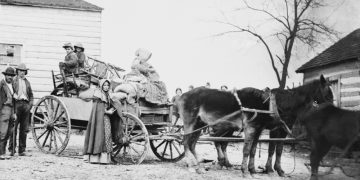



















![[Part 2] What’s After Flattening The Curve](https://www.survivopedia.com/wp-content/uploads/2020/05/2020_05_04_flatten2.jpg)

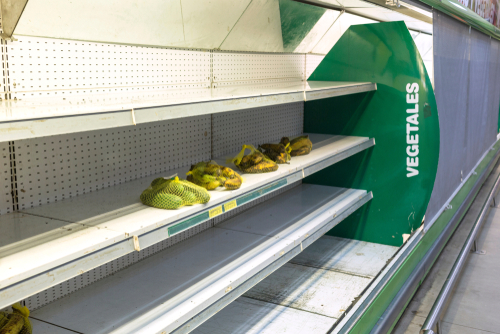
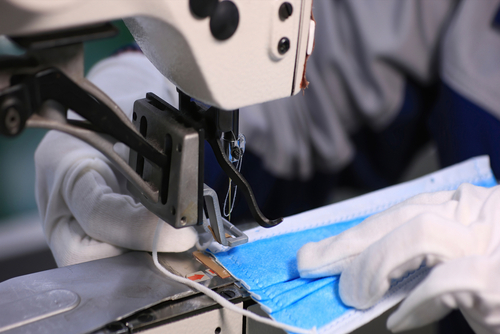
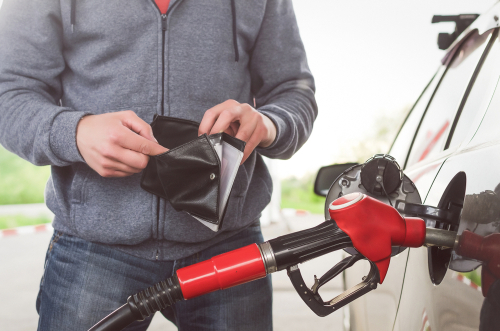


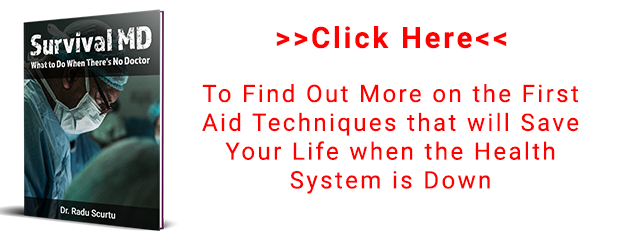
























































There’s a fourth potential disaster we could be looking at, Bill, and that is that the Asian Giant Hornet has made it to our shores on the west coasts of both Canada and the United States. As if we don’t have enough to contend with already. And this thing is VERY good at destroying honey bee colonies. And we all know what happens if we don’t have bees anymore. About four years.
And this thing is HUGE. The queen is about 2 inches or so and the workers about an inch and a half. And the venom is so potent that if you get stung about a dozen or so times you HAVE to go to the hospital.
Unfortunately, Bill, I have to agree with your assessment. What we are going through is the “easy” phase. I hate to be negative but I can’t see any good happening after we get this virus under control. And that may be more difficult than we think. The latest news article I’ve read re: the corona virus is that the virus HAS mutated and the new strain is even MORE contagious. Once again, thank you China.
Whether or not we get a great many of our goods from China something needs to be done about them. They need to be punished and in the most severe way possible. If the virus was let out into the environment by accident that’s one thing. But I can’t believe the Chinese are that sloppy or that stupid. If they let the virus out into the environment deliberately then they need to be completely isolated from the world economy even if it causes short term pain in the West. They need to understand that what they’ve done is completely unacceptable and will not be tolerated.
This may be TEOTWAWKI, Bill, but not the end of the world. I also believe that we’re in for one heck of a depression and the people these days have no sense of honour or right and wrong as they did in the last great depression. The people in the big cities are going to be the hardest hit and the most desperate. We’ve talked many times on this website and the sister site about what may happen if people get hungry and desperate enough. Ain’t going to be pretty. If you’re an actual prepper you are somewhat prepared. We don’t need meat EVERY day. There are alternatives. Just keep your gun or guns close at hand and in good working order. Don’t take anything for granted and don’t be fooled by the waif with huge sad eyes coming to your door with a baby in her arms. Always, hope for the best but be prepared for the worst. I truly believe the worst is yet to come. I hope I’m wrong.
It just keeps getting better and better, Bill. This the latest from our wonderful WHO;
“An effective vaccine to protect against coronavirus may never be developed, a special envoy to the World Health Organization (WHO) on COVID-19 has said.
An effective vaccine is regarded as crucial to stopping the spread of the virus – but it is unknown how long it could take to produce one. Human trials of a vaccine developed by Oxford University began last month, with scientists aiming to have a million doses ready by September if tests go well.
US health experts have repeatedly said a vaccine is probably a year to 18 months away, though the White House said late last month that a vaccine could conceivably be in wide distribution as early as January.
“There are some viruses that we still do not have vaccines against,” said Dr. David Nabarro, a professor of global health at Imperial College London, who is also serving as a special envoy to the WHO during the coronavirus pandemic”.
I don’t want to sound like chicken little but maybe this IS it. If we’re “lucky” (what a terrible misuse of the word) the best case scenario may be that “only” 300 to 500 million of us die. What a horrible thing to even contemplate but it may come to pass. Then the rest of us may have acquired a herd immunity in the meantime. What strange times we’re living in.